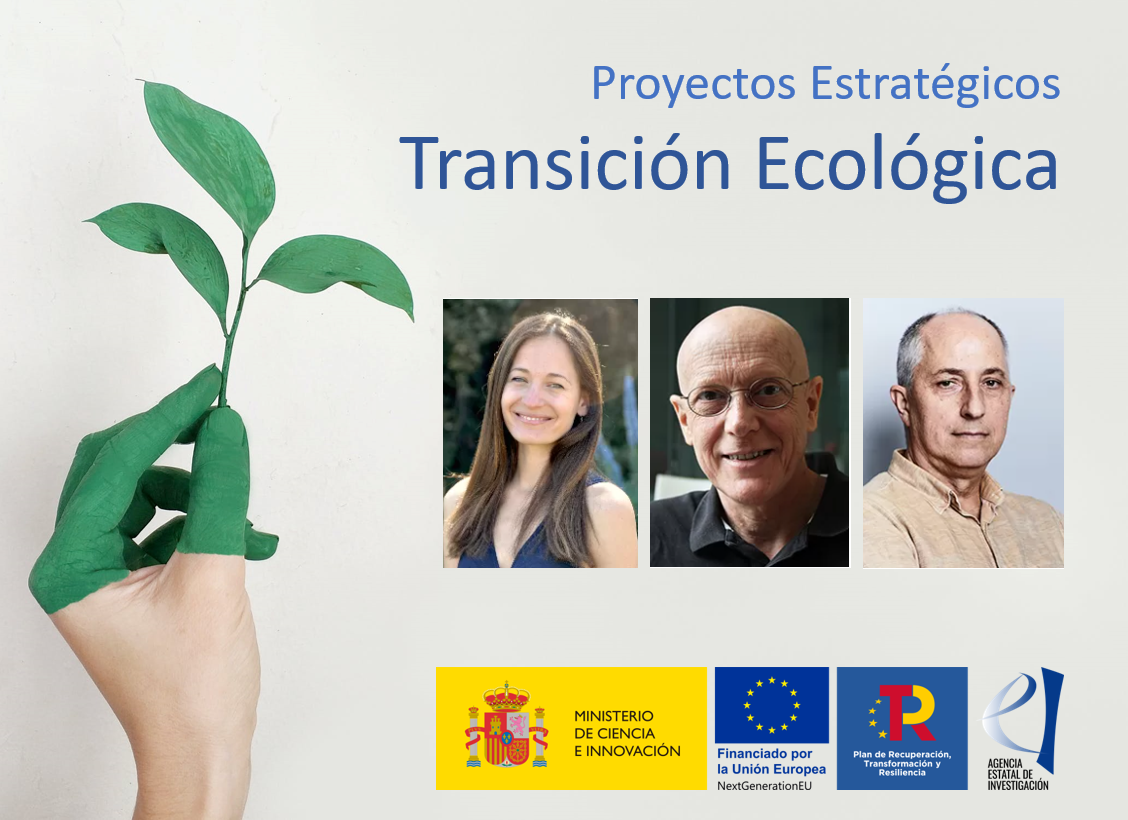
ICFO to coordinate three Ecological Transition Strategic Projects
Profs. Georgia Papadakis, Jordi Martorell, and Niek van Hulst receive funding to conduct pioneering research in advanced clean energy technologies.
December 15, 2022
The purpose of the grants is to generate scientific knowledge and quality research oriented at the Ecological Transition, which pursues environmental objectives such as climate change mitigation, adaptation to climate change, among others.
Prof. Georgia Papadakis, leader of the Thermal Photonics group at ICFO, has been awarded funding to pursue the project “Exploring material anisotropy and nonreciprocity for Thermal Management” (MANNON). MANNON seeks to advance in the field of thermal energy management, namely electricity generation from excess and waste heat (via thermophotovoltaic systems), and efficient heat rejection via radiative cooling. This will be done through: 1) improving radiative cooling performance through simplified means of controlling the direction of radiated heat; 2) conducting systematic thermodynamic analysis of thermophotovoltaics and radiative cooling in the presence of nonreciprocity; 3) proposing photonic strategies to practically induce enhanced nonreciprocity close to thermodynamic limits by means of emerging materials; and 4) proposing mechanisms for spectrally tuning thermal emission actively.
Prof. Jordi Martorell, leader of the Organic Nanostructured Photovoltaics group at ICFO, has been awarded funding to pursue the project “Transparent solar cells for an optimal combination of agriculture and green energy” (AGREEN). AGREEN proposes a novel approach to make land use for solar photovoltaic fields compatible with plant growth for food production. This will be done through the design and fabrication of semi-transparent Organic Photovoltaic (OPV) devices incorporating a specially designed nanostructure to reach a good match between 1) light transmission within the plant action spectrum (needed for optimal plant growth) and 2) light absorption, in particular infrared light trapping, for a more effective conversion to electricity by OPV. This will be achieved through the implementation of new numerical models to design the cells and nanostructures considering changing illumination conditions, weather, and geographical location. Likewise, new parameters and materials will be considered in design and fabrication of the OPVs and photonic nanostructures.
Prof. Niek Van Hulst, leader of the Molecular Nanophotonics group at ICFO, has been awarded funding to pursue the project “Imaging multi-dimensional spectral flow in energy materials” (SPECFLOW). SPECFLOW seeks to address the ultrafast (femto- and picosecond) energy flow via charge carriers at the nanoscale in advanced photoactive organic and semiconductor energy materials. Specific objectives of the SPECFLOW project are: 1) sampling local ultrafast multidimensional spectra using 2-dimensional (excitation-emission) spectroscopic microscopy to map the development of the energy landscape, identifying the excited state couplings and elucidating the role of spectral and spatial disorder. To this end, SPECFLOW will implement population sensitive collinear 2D spectroscopy with both photocurrent and emission detection on organic and semiconductor energy materials, and operando on operating solar cells; 2) tracking spatiotemporal energy transport on the nanoscale by super-resolved transient optical microscopy, nanophotonic light localization and point-to-point collinear 2D spectroscopic imaging, in order to to reveal spatial disorder and quantify diffusion.
Congratulations Georgia, Jordi and Niek! We will be watching closely as you progress in these fascinating projects.
The “Ecological and Digital Transition Projects” are funded by MCIN/AEI/10.13039/501100011033 and European Union NextGenerationEU/ PRTR

MANNON > REF. TED2021-129841A-I00
AGREEN > REF. TED2021-129728B-I00
SPECFLOW > REF. TED2021-129241B-I00